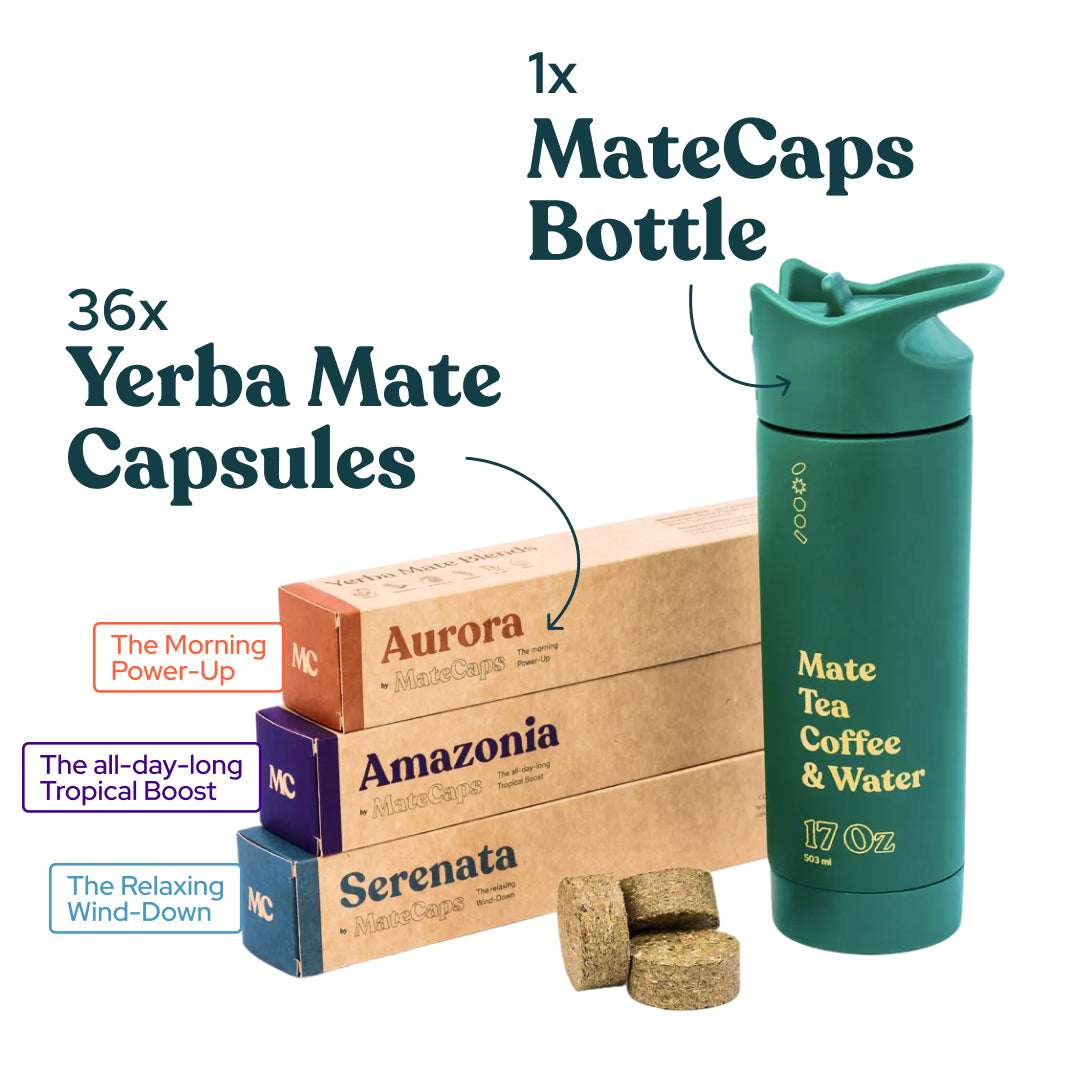
How Unhealthy Is Monster? Sugar, Caffeine, Risks
Curious about how unhealthy is Monster? You're not alone. 🍹 Many of us reach for a bright can when we need a quick boost. But that quick lift can come with hidden costs. This article breaks it down in simple, clear terms so you can choose smarter, cleaner energy. ⚡️
What's inside a Monster can
A quick look at the label tells most of the story. A typical 16 fl oz Monster Energy contains:
- Caffeine: ~160 mg (roughly two cups of coffee). ☕️
- Sugar: ~50–55 g (more than a standard soda). 🍬
- Calories: ~200 kcal.
- Additives: taurine, B-vitamins, guarana, ginseng, artificial flavors.
These ingredients combine to give a fast energy spike. But spikes can end in crashes, and repeated spikes can lead to bigger health problems.
How unhealthy is Monster in the short term? (Immediate effects)
Short-term effects are the reasons many people reach for Monster: alertness and focus. But there are downsides:
- Quick energy boost. Monster raises alertness for a few hours. Good for late study sessions. ✅
- Jitters and anxiety. Too much caffeine can cause shaking, nervousness, and fast heart rate. ⚠️
- Caffeine crash. When the buzz fades, you may feel tired and irritable.
- Sleep disruption. Late-day cans can ruin sleep for hours.
Real example: Drink a 16 oz can mid-afternoon and you may struggle to fall asleep that night. Not worth it if you want calm, steady energy.
How unhealthy is Monster in the long term? (Chronic risks)
Drinking Monster regularly can lead to bigger problems:
- Weight gain and diabetes risk. High sugar adds empty calories. Over time, this raises risk of insulin resistance and type 2 diabetes.
- Heart health issues. Excess caffeine and stimulants can raise blood pressure and stress the heart, especially in sensitive people.
- Dental damage. Sugar + acidity = enamel erosion and cavities.
- Dependence and tolerance. You may need more over time for the same effect.
These are not immediate for everyone. But regular daily consumption increases chances of these outcomes.
Numbers matter: How unhealthy is Monster by the numbers
Putting numbers next to the risks helps:
- A 16 fl oz Monster: ~160 mg caffeine, ~50–55 g sugar, ~200 calories.
- Recommended caffeine limits: 400 mg/day for most adults (FDA). That means two 16 oz Monsters could put you near the daily limit.
- WHO and health groups recommend limiting added sugar to about 25 g/day for optimal health. One can already doubles that.
Comparisons:
- 8 oz brewed coffee: ~95 mg caffeine, 0 g sugar if black.
- 12 oz cola: ~39 g sugar, ~34 mg caffeine.
- 8.4 oz Red Bull: ~80 mg caffeine, ~27 g sugar.
Takeaway: A single Monster often contains more sugar than you should have in a day and a caffeine dose approaching two cups of coffee.
Who should absolutely avoid Monster?
Some groups face higher risk if they drink Monster:
- Kids and teens. Their bodies are more sensitive to caffeine and sugar. 🚫
- Pregnant people. Doctors often advise limiting caffeine to keep pregnancy risks low.
- People with heart or blood pressure issues. Stimulants can worsen these conditions.
- People with diabetes or insulin resistance. High sugar spikes blood glucose.
If you're in any of these groups, safer options exist.
Monster + alcohol: a risky mix
Mixing Monster with alcohol is common at parties. That’s dangerous.
- Stimulant + depressant = you may feel less drunk than you are. That increases risky behavior.
- Higher risk of heart strain, dehydration, and impaired judgment.
If you drink alcohol, skip the energy drink mix.
How unhealthy is Monster compared to coffee and soda?
- Coffee (black) is a cleaner stimulant: no added sugar, fewer calories, similar caffeine per serving.
- Soda is similar on sugar but usually has less caffeine than Monster.
If you want a lift without sugar, coffee or plain tea is better. If you want a calmer, sustained lift, natural options like yerba mate or green tea are good alternatives.
Healthier alternatives that still give energy
If you want energy without the crash, try these:
- Black coffee: Clean caffeine, no sugar. ☕️
- Green tea: Lower caffeine, calming L-theanine for steady focus. 🍵
- Yerba mate: Natural stimulant, smoother energy and rich in antioxidants. 🍃
- Water + a snack: Dehydration can cause fatigue. A balanced snack works wonders.
- MateCaps (Yerba Mate capsules): Convenient, sugar-free burst of clean energy. ✅
Why these work: they provide caffeine with fewer additives and less sugar. That means fewer crashes, less impact on weight, and steadier mood.
Practical tips to cut down or replace Monster
If you drink Monster regularly and want to cut back:
- Start small. Replace one can a day with coffee or tea.
- Space it out. Don’t drink late in the day.
- Read labels. Know how much sugar and caffeine are in your drinks.
- Choose unsweetened. Black coffee or unsweetened tea have zero added sugar.
- Try MateCaps. They deliver yerba mate in easy capsules. No sugar, no crash. Add to cart and feel the difference! 🛒
Real people, real results (testimonials)
"I swapped one Monster a day for MateCaps. No jitters, better sleep, and I lost a few pounds." — Jamie R. 👏
[Image: Before/After energy chart placeholder]
"I used to drink Monsters at work. Now I take yerba mate capsules and I feel more consistent all day." — Omar L. ⭐️⭐️⭐️⭐️⭐️
[Image: Smiling customer photo placeholder]
These are typical results when people shift from sugary energy drinks to cleaner options.
Bottom line: How unhealthy is Monster?
Monster gives a powerful, fast lift. But it comes with a lot of sugar and stimulants. If you drink it occasionally, the risk is low for most healthy adults. But daily use raises concerns: weight gain, higher diabetes risk, heart strain, sleep problems, and dependence.
If you want steady, clean energy with less risk, switch to natural options. Yerba mate is a great middle ground: smooth energy, antioxidants, and no sugary crash.
Take action: choose cleaner energy
If you’re ready to reduce sugar and get calmer, steady energy, consider switching to natural alternatives. For a convenient, sugar-free solution, check out MateCaps. Their yerba mate capsules deliver sustainable energy without the crash. Visit https://matecaps.com to learn more and try a cleaner boost today. 🌿
Remember: small changes add up. Swap one can for a cup of mate. Sleep better. Feel calmer. Live healthier. ✨
This article is informational and not medical advice. If you have health concerns, speak with your healthcare provider.
Frequently Asked Questions
Is Monster energy drink bad for you?
Monster can be safe in small amounts for healthy adults, but it has high sugar and stimulant levels. A typical 16 oz can contains around 160 mg caffeine and 50–55 g of sugar. Occasional consumption is unlikely to cause harm in most people, but regular daily use raises risks: weight gain, insulin resistance, sleep disruption, increased blood pressure, and dental issues. People with heart conditions, pregnant individuals, teens, and those sensitive to caffeine should avoid Monster or speak to a healthcare provider before consuming it.
How much caffeine is in a Monster can?
A standard 16 fl oz Monster Energy contains roughly 160 mg of caffeine, which is about the same as one to two cups of brewed coffee depending on strength. The FDA’s safe limit for most healthy adults is about 400 mg per day, so two cans could bring you near that limit. Sensitive people may feel effects at much lower amounts, including jitteriness, rapid heartbeat, and sleep problems.
Can drinking Monster every day cause health problems?
Daily consumption of sugary energy drinks like Monster increases the risk of chronic issues over time. Regular intake of added sugars and extra calories can lead to weight gain and raise the risk of type 2 diabetes. Frequent high caffeine intake can contribute to elevated blood pressure, heart rhythm issues in sensitive individuals, and poor sleep. Over time, people can develop tolerance, requiring more to get the same effect, which compounds these risks.
Is Monster worse than coffee or soda?
It depends on what you compare. Compared to black coffee, Monster is worse nutritionally because it contains a lot of added sugar and calories. Versus soda, Monster often has similar or higher sugar and more caffeine. If you want energy without sugar and extra calories, black coffee or unsweetened tea is generally the better choice. For a smoother, antioxidant-rich option, yerba mate is a strong alternative.
Can teens drink Monster safely?
Health experts advise caution. Teens are more sensitive to caffeine’s effects and are more likely to experience sleep disruption, anxiety, and heart palpitations. The high sugar content also contributes to poor diet quality and dental problems. Many pediatricians recommend that adolescents limit or avoid energy drinks and choose water, milk, or low-sugar beverages instead.
What are healthier alternatives to Monster?
Healthier picks include black coffee (no sugar), green tea (lower caffeine and calming L-theanine), and yerba mate (smooth energy and antioxidants). Hydration plus a balanced snack can also boost energy. For convenience, products like MateCaps deliver yerba mate in easy, sugar-free capsules for a steady lift without the crash associated with sugary energy drinks.
